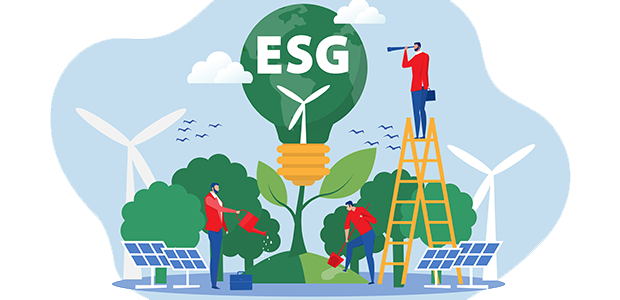
Why community relations are the key to ESG for startups
Environmental, Social and Governance (ESG) has been the corporate craze of recent years: the route for global giants to flex their eco and workforce credentials, and an excuse for business consultancies to generate endless new reports and frameworks. But the biggest corporate secret is that, when it comes to ESG credentials, startups consistently steal a march on their rivals.
At least one third of startups are thought to be purpose-led, and by nature of following some greater cause than profit and growth, they have an intrinsic alignment with most ESG criteria, regardless of whether they choose to view or report on their business in this way or not. Even for startups which aren’t purpose led, it’s far simpler to build positive practices into the company as it evolves than it is for large corporate juggernauts to undo and rebuild. And for early-stage startups which struggle to justify investing their time and money into ESG, the picture is still positive as their ESG performance improves as they scale.
There’s also one factor which trumps the rest: investor attitudes. Driven partly by the COVID pandemic, investor interest in ESG has skyrocketed, with an estimated 67% of investors planning to buy more shares in ESG-focused companies. For any startup founders who doubt the value of ESG, this fact alone should change their mindset.
The slippery S of ESG
We all know the elements of good environmental, social and governance when we see them. Companies which are carbon neutral, and which actively minimise their water usage, pollution and waste production across their supply chains, will score well on environmental practices. Those which use independent auditors, have a diverse board and executive accountability practices will do well on governance.
The S of ESG is harder to pin down. Ask an ESG expert and you’ll hear that “startups must build a strong social contract with employees; including ‘living’ wages, an inclusive culture, and support for mental health” (Harvard Business Review). Or if you’re funded by socially responsible investors (SRI) you’ll be expected to promote “diversity, inclusion, community-focus, social justice, and corporate ethics, in addition to fighting against racial, gender, and sexual discrimination” (Investopedia).
These social requirements seem not to be an issue for startups. In fact, according to the ESG VC 2022 report, social is where startups are strongest with 41% of Series C+ startups holding the top ranking of 4 stars, compared to just 7% for environmental (see page 4).
There’s one problem, though, and it’s borne from the fact that ESG is often seen through the lens of big business. While the S of ESG traditionally focuses on employees, the reality of early-stage startups is more nuanced and fluid than that.
For example, most founders receive ad-hoc unpaid assistance in the formative stages of building their business – from friends, peers and acquaintances willing to do odd jobs, make introductions and call in favours from across their networks to help give the company a leg-up. If any payment is made, it’s probably in the form of pizza and drinks, or a favour in return. In fact, these casual but committed working relationships may go on for years as the startup scales, without the adviser, freelancer or consultant ever landing on the payroll.
For early-stage startups the line between employee, customer, peer and friend is blurred. It’s more productive to think of these people – and therefore the social elements of ESG for startups – as your community. That’s why startups should double-down on community relations as the key to their social and wider ESG strategies.
Community is key
An early-stage startup’s biggest asset is its community. This community is an important part of driving business growth and adoption, like in the example above of supporters helping companies scale without expecting any clear return.
People in a company’s community are those who make an impactful contribution, and smart startups that are community-led will incentivise their community – recognising that this will help to facilitate further growth. Community relations, then, is all about reciprocity. Creating a vibrant community that extends beyond employees means benefits must flow between the business and its supporters.
But there are currently very few ways for founders to formally recognise their community’s contribution, let alone incentivise their sustained efforts into the future. While shares and options can be powerful tools to encourage people to go the extra mile, these schemes are generally built around employees or investors, rather than informal contributors and advocates, and are too often offered on a transactional basis. Nor can founders keep offering discounts or lowering prices to keep their community engaged and supportive.
Instead, it’s remarkably simple for communities to earn and own equity-like stakes in a startup. Within Koos, for example, these stakes provide a return when certain goals are met – and allow business success to be shared by the people who deliver it. There are clear ESG benefits here. A strong community demonstrates a company’s commitment to its people by building authentic and loyal relationships. Ultimately it delivers growth and social impact at the same time – which gets to the heart of ESG – thus helping businesses to ‘scale with soul’ and give back as they grow.
Towards a fairer society
Since its rapid rise in popularity, ESG has always been about the big, strategic conversations in business. How can companies do good and make a positive impact on the world? How can they fight inequality in all its forms?
By honing in on their community, startups can actually play their part in rebalancing the fairness of ownership. Community relations is the key to empowering people usually overlooked or marginalised by business, and therefore creating a real social impact through ESG: not bad for a corporate buzzword.

